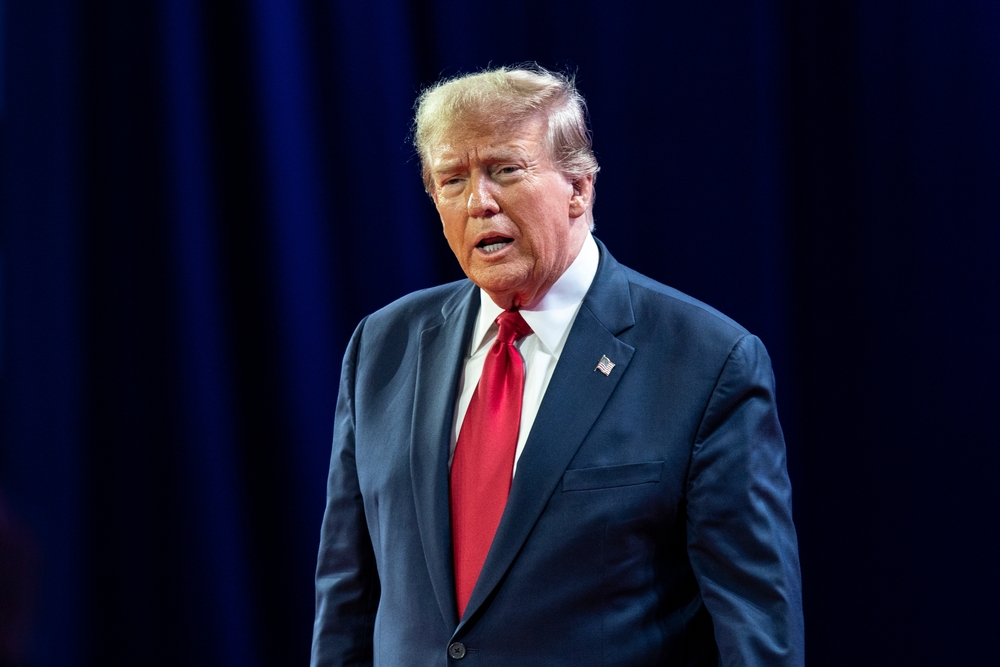Posted by:
President Trump expected to meet House and Senate Democratic leaders this week despite expressing doubt about potential impact on funding negotiations

President Donald Trump is expected to meet with House Minority Leader Hakeem Jeffries and Senate Minority Leader Chuck Schumer this week to discuss government funding as lawmakers face a September 30 deadline to avoid a shutdown.
Two sources familiar with the matter confirmed the planned meeting, though specific timing and location details have not been finalized. The discussion is expected to take place in Washington as requested by both Democratic leaders from New York.
Trump expresses skepticism about meeting impact
Trump acknowledged the upcoming meeting over the weekend but expressed doubt about its potential effectiveness. The president indicated his willingness to engage with Democratic leadership while questioning whether the discussions would produce meaningful results.
The meeting comes after both parties failed to advance their respective funding proposals in the Senate last week. Republican and Democratic bills both fell short of the 60-vote threshold needed to proceed, leaving lawmakers without a clear path forward.
Current Senate composition requires bipartisan cooperation to pass any funding measure, with Republicans holding 53 seats in the chamber. This mathematical reality forces both parties to find common ground despite their policy differences.
Competing funding proposals fail in Senate
The Democratic funding proposal included provisions to extend Obamacare subsidies scheduled to expire at the end of the year. This measure fell 13 votes short of the required threshold during last week’s procedural vote.
The Republican alternative would fund government operations at current spending levels through November 21 while preserving cuts to previously appropriated spending. This approach has drawn strong opposition from Democrats who view the cuts as unacceptable.
The GOP proposal performed worse than the Democratic version, falling 16 votes short of passage. The failed votes demonstrated the challenge facing both parties in crafting legislation that can attract sufficient bipartisan support.
Congressional recess complicates negotiations
Both chambers of Congress remain on recess this week, limiting opportunities for intensive negotiations between party leaders. Republican leadership has decided against calling the House back into session before the funding deadline expires.
This scheduling decision places additional pressure on any agreement that might emerge from the Trump-Jeffries-Schumer meeting. Without House members present in Washington, implementing any potential deal would require rapid coordination once lawmakers return.
Senate Majority Leader John Thune criticized the Democratic approach last week, characterizing their proposal as unserious. His comments reflect the partisan tensions that have complicated funding negotiations throughout the process.
Democratic leaders cite Trump influence on Republicans
Schumer and other Democratic leaders have pointed to Trump’s public statements advising Republicans against negotiating with Democrats over funding measures. These comments have created additional obstacles for bipartisan cooperation on budget issues.
The Democratic leadership argues that Trump’s influence over Republican congressional leaders has undermined traditional negotiation processes. They suggest that direct engagement with the president might prove more productive than working through intermediaries.
House Speaker Mike Johnson and other Republican leaders have faced pressure to balance Trump’s preferences with practical governing necessities. This dynamic has complicated their ability to engage in typical bipartisan dealmaking processes.
Shutdown consequences affect federal operations
A government shutdown would leave many federal workers without pay while maintaining only essential services. Mandatory programs including Border Patrol operations, Postal Service delivery, and Social Security payments would continue during any funding lapse.
The potential impact extends beyond federal employees to include contractors, grant recipients, and local economies dependent on government spending. These broader consequences often create pressure for quick resolution of funding disputes.
Previous shutdowns have demonstrated the economic costs of prolonged funding lapses, particularly for federal workers who may struggle to meet financial obligations without regular paychecks. These human impacts often influence political calculations during budget negotiations.
Bipartisan cooperation remains essential
Senate rules requiring 60 votes for most legislation ensure that neither party can unilaterally impose its funding preferences. This reality forces both Republicans and Democrats to compromise on their initial positions.
The mathematical requirements mean that any successful funding measure must attract support from both parties, regardless of which side initiates the proposal. This dynamic often leads to negotiations that blend elements from competing approaches.
Historical precedent suggests that last-minute bipartisan agreements often emerge when shutdown deadlines approach. However, the current political environment and partisan tensions may complicate traditional resolution patterns.
Timeline pressure builds toward deadline
The September 30 deadline creates urgency for any agreement that might emerge from this week’s meeting between Trump and Democratic leaders. Legislative processes typically require several days to complete even when broad agreement exists.
If the meeting produces a framework for compromise, congressional leaders would need to quickly translate any understanding into specific legislative language. This technical process often reveals implementation challenges not apparent in high-level discussions.
The compressed timeline may force lawmakers to consider short-term extensions that provide additional negotiating time rather than comprehensive long-term funding solutions.
Sort By
 Register for exclusive access to VIP events and more
Register for exclusive access to VIP events and more
Sign up for periodic updates, special discounts, and more!





















